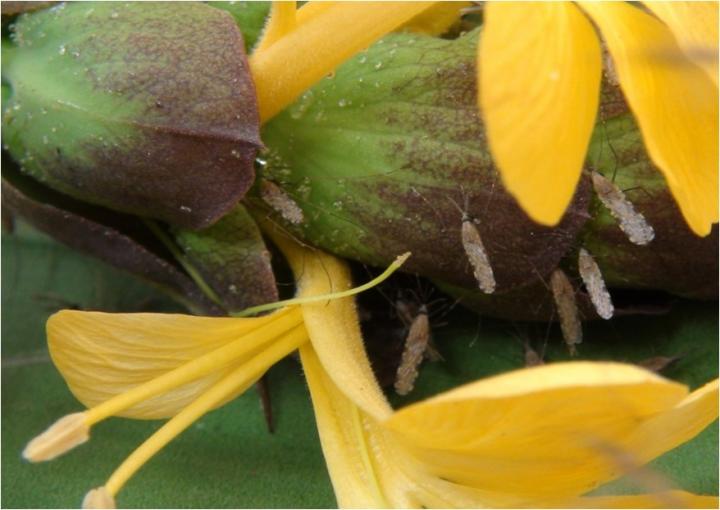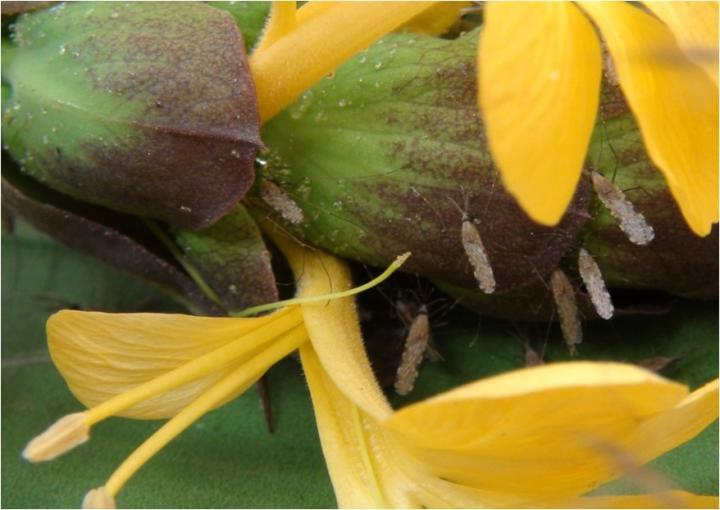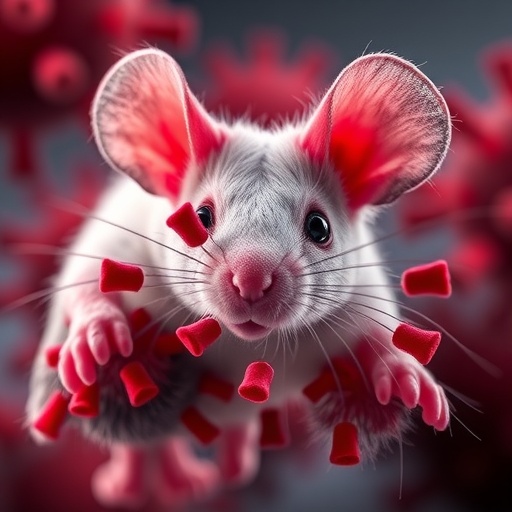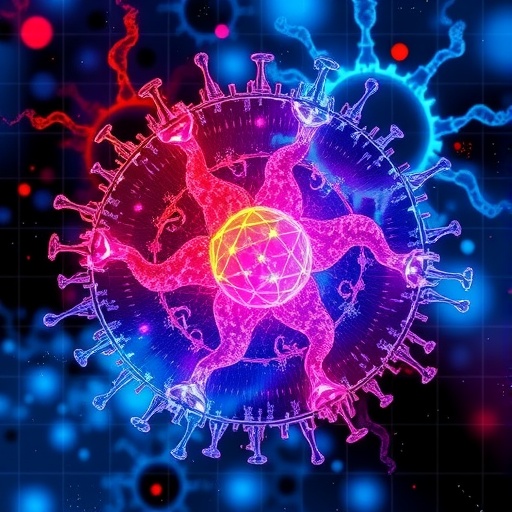
Credit: Hien et al.
Female mosquitoes are well known blood-feeders, but they also consume sugar sources such as nectar, fruits and tree sap. A study published on August 4th in PLOS Pathogens suggests that the plant-based part of their diet affects malaria transmission by influencing the host-pathogen interaction between Anopheles mosquitoes and Plasmodium parasites.
Recent studies have shown that Anopheles females, which can transmit the malaria parasite P. falciparum, locate and display preferences for natural sources of plant sugar. These studies also suggested that environmental sugars influence the lifespan and blood-feeding rate of mosquitoes, and thereby their malaria transmission potential. Whether plant sugar choice could also affect the malaria host-pathogen interactions directly is not known.
To find out, Domonbabele Hien and Thierry Lefevre, from the Institut de Recherche en Sciences de la Santé in Bobo Dioulasso, Burkina Faso, together with colleagues, examined the impact of plant diversity on mosquito susceptibility to malaria parasites. The researchers studied the natural interactions between the P. falciparum parasite, the Anopheles coluzzii mosquito (a major vector of P. falciparum in Africa), and several natural plant-derived sugar sources growing in the vicinity to human dwellings in Burkina Faso. The latter included two ornamental flowering plants (B. lupilina and T. neriifolia) as well as mangoes and the grape-like fruit from the Lannea microcarpa tree.
The researchers raised groups of Anopheles mosquitos in cages and provided each of them with a different plant sugar source or with a 5% glucose solution (i.e., sugar water). Sugar-fed mosquitoes were then starved for 24 hours before being offered a parasite-containing blood meal. The blood was drawn from healthy Plasmodium-infected local human volunteers and diluted to a consistent concentration of parasites.
Blood-fed female mosquitoes were housed in a biosafety room and continued to be fed their assigned plant sugar source. Seven or fourteen days after the blood-meal, roughly 30 mosquitoes from each group were examined under the microscope for traits that influence malaria transmission. Different sugar sources, the researchers found, had different effects on all traits examined, including the infection and survival rates of the mosquitoes and the survival rate of the parasites seven days after the blood meal. The plant sugar source also influenced the proportion of mosquitoes harboring sporozoites (the Plasmodium stage that can infect humans) and the timing of sporozoite release.
To predict the relative contribution of the different plants to overall malaria transmission, the researchers used the various experimental results in an epidemiological model. This suggested that, indeed, plant sugar source can be a significant driver of malaria transmission dynamics. Compared to the baseline scenario with the 5% glucose solution, both L. microcarpa and B. lupilina increased malaria transmission by an estimated 30 and 40%, respectively, mainly because of increased infection rates among mosquitoes exposed to parasites through their blood-meal. In contrast, T. neriifolia, with its negative effect on infection rate and decreased longevity, was predicted to decrease malaria transmission by 30% compared with sugar water.
Discussing their findings in context, the researchers say, "previous research has revealed the role of sugar in providing energy for flight, increasing mosquito survival and fecundity, and decreasing biting rate on vertebrate hosts. Our findings add a more direct effect of epidemiological importance by showing that plant-derived sugars can modulate mosquito-Plasmodium interactions". Consequently, they suggest that "planting of anti-Plasmodium plant sugar sources may represent a promising alternative strategy to contribute to the control of malaria".
###
Contact:
Domonbabele Hien
e-mail: [email protected]
phone: +226.71903870
Thierry Lefevre
e-mail: [email protected]
phone: +226.72828355
In your coverage please use this URL to provide access to the freely available article in PLOS Pathogens: http://dx.plos.org/10.1371/journal.ppat.1005773
Related Image for Press Use:
Caption: Anopheles females, feeding on extra floral nectar of Barleria lupilina.
Image Credit: Hien et al.
Please contact [email protected] if you would like more information.
Funding: The work was funded by the ANR grant 11PDOC-006-01 to TL (http://www.agence-nationalerecherche.fr). The funders had no role in study design, data collection and analysis, decision to publish, or preparation of the manuscript.
Competing Interests: The authors have declared that no competing interests exist.
Citation: Hien DFdS, Dabiré KR, Roche B, Diabaté A, Yerbanga RS, Cohuet A, et al. (2016) PlantMediated
Effects on Mosquito Capacity to Transmit Human Malaria. PLoS Pathog 12(8): e1005773. doi:10.1371/journal.ppat.1005773
Media Contact
Domonbabele Hien
[email protected]
226-719-03870
http://www.plos.org





